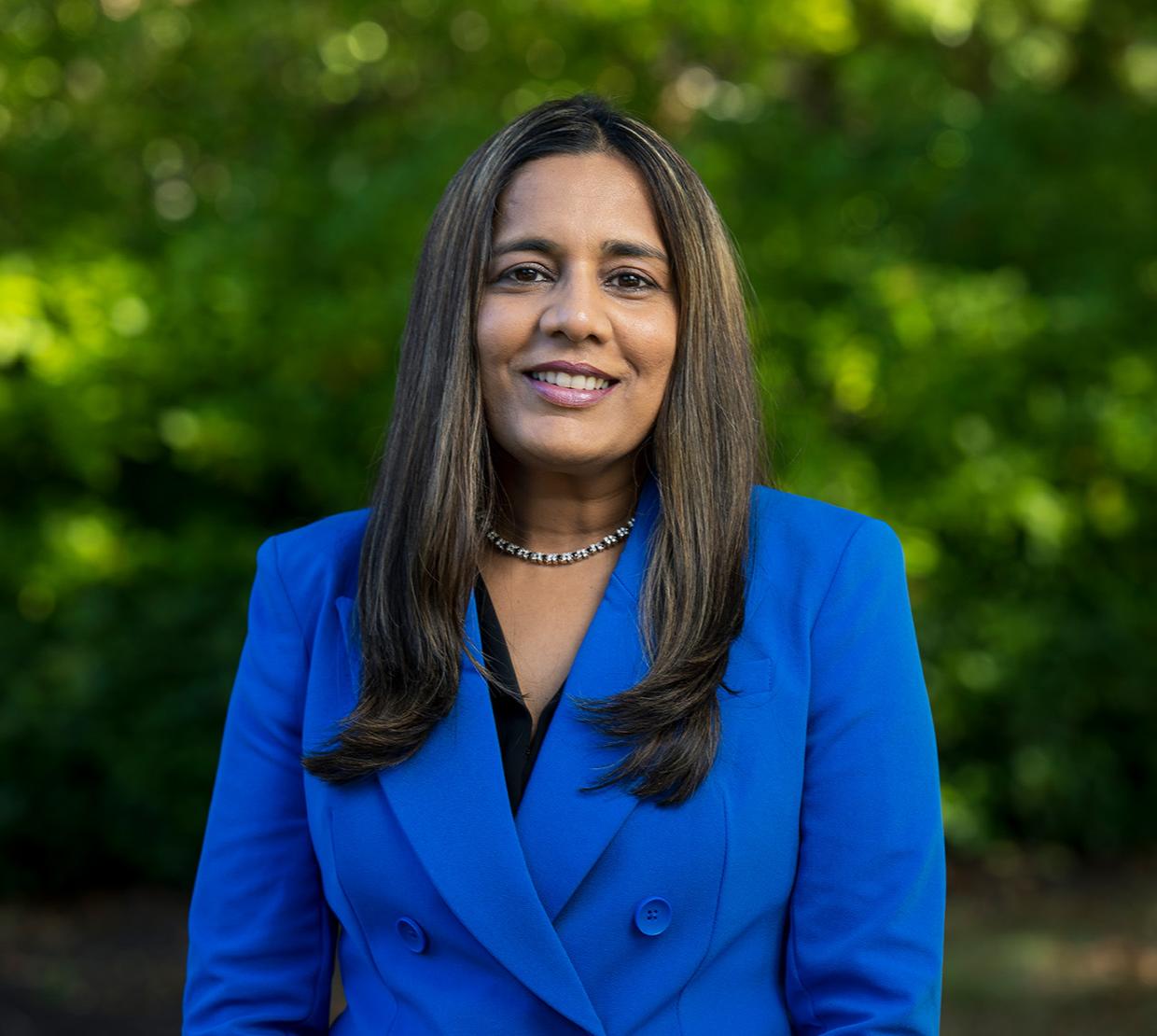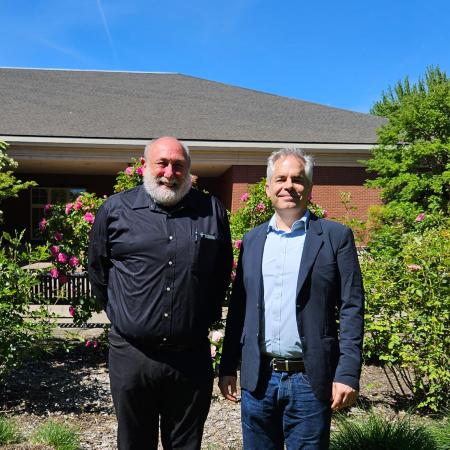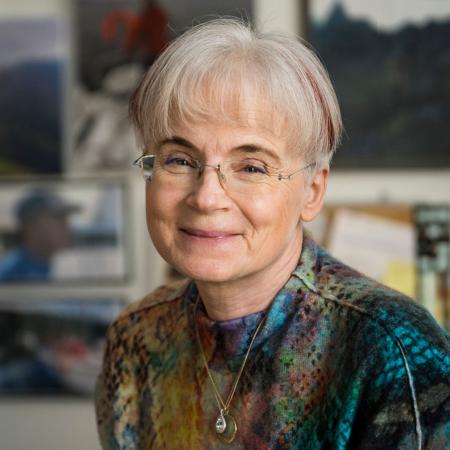Throughout her graduate and doctoral education in mathematics and as an academic faculty member, Vrushali Bokil recognized that in many academic places, she was the only woman or the only woman of color in the room.
As her career progressed, her lived experiences highlighted the problematic nature of the underrepresentation of women and minorities in mathematics and science as a whole.
Bokil is working to make the sciences more welcoming and accessible to all. On August 1, she will continue fostering scientific excellence and inclusivity in her new role as interim dean for the Oregon State University College of Science. Bokil will be the first woman and the first woman of color to be interim dean of science at Oregon State University.
In collaboration with the Science community, she is eager to implement the College’s soon-coming strategic plan, crafted in a College-wide effort over the last year, that aims to enhance research and innovation, increase outreach and engagement, improve access to science education and develop the next generation of science leaders.
“I have every confidence that Vrushali Bokil will do an outstanding job serving as interim dean,” said Roy Haggerty, previous College dean.
Discovering mathematics
At the age of 15, Bokil decided she wanted to be an astrophysics professor. With a family history of academics, it seemed like a logical choice. While receiving her undergraduate degree in India, a passionate mathematics instructor drew her attention away from the sky and she was hooked.
She earned her Master of Science in Mathematics from New Mexico State University in 1996 and her doctoral degree in mathematics from the University of Houston in 2003. Before coming to Oregon State, she was a postdoctoral research associate at the Center for Research in Scientific Computation at North Carolina State University.
Part of the Oregon State faculty since 2006, Bokil is currently the College of Science associate dean for research and graduate studies as well as a professor in the mathematics department. Since July 8, she has been serving as the acting dean of science. Her general research interests include computational and applied mathematics, numerical analysis and mathematical biology.
Bokil is currently a co-PI on two National Science Foundation funded projects in computational mathematics. Her primary research is in the field of computational electromagnetics, which uses computational tools to study electromagnetic wave propagation in different materials. The research can be applied towards designing new materials and understanding in a computational setting what materials are best suited for different applications.
She is also working with an international team of researchers on several problems in mathematical ecology involving the construction and analysis of deterministic and stochastic models for applications in population dynamics, epidemiology and spatial ecology.
In 2019, she received a College of Science Research and Innovation Seed (SciRIS) grant to use modeling techniques to understand the spread and control of plant diseases caused by co-infecting viruses. She has also been funded by the Thomas Jefferson Fund of the FACE Foundation to conduct Transatlantic research, working with a French collaborator, in this area.
She acknowledges that she couldn’t have done any of this alone.
“I’ve been very lucky, I’ve had amazing mentors and collaborators all my career, throughout undergraduate, graduate and beyond,” Bokil said. “I can see that a lot of the things that made today happen, would not have happened if I hadn’t had those mentors, if I hadn’t had those opportunities, if I hadn’t had that access, so I just want everyone to have the same opportunities I had.”
Stepping into the role as interim dean, inclusivity, collaboration, access and equity will remain a top priority.
In 2021, Bokil was the chair and lead of the College of Science Diversity, Equity, Justice, and Inclusion Working Group. This group led the development of the College’s 2021-2024 Diversity Action Plan (DAP) Embedding Equity, Access & Inclusion. The DAP highlights five goals for the College including equitable hiring, forming an inclusive climate, and innovative access to learning and research experiences.
“If I think about everything I’ve done, I would say the success of my students has been really gratifying."
Bokil is also an ADVANCE Faculty Fellow, ADVANCE Seminar graduate and Train the Trainer graduate. Funded by the National Science Foundation, ADVANCE aims to help further the study and practice of equity, inclusion and justice for women faculty and others from historically underrepresented groups.
Her work with ADVANCE was part of the reason she received the inaugural College of Science Inclusive Excellence award in 2019.
If you ask her what her proudest achievement is, her answer is simple.
“If I think about everything I’ve done, I would say the success of my students has been really gratifying,” she said. “That my students have gone on to be successful, that to me says I’ve done the right thing as a professor.”
After student success, her work creating collaborative networks that foster opportunities for underrepresented groups is a source of pride.
Bokil is a member of the Association for Women in Mathematics, the Society for Industrial and Applied Mathematics and serves these organizations by working on employment and career opportunities for students and strategies for women to address harassment and inequities.
“It’s really important to improve the status of women in mathematics and science generally speaking by networking and increasing the collaborative networks that women have access to so they have access to opportunities,” she said.
Increasing the representation of women in STEM is part of the highly competitive Executive Leadership in Academic Technology, Engineering and Science (ELATES) program at Drexel University.
Bokil was selected as a 2021-2022 fellow, one of 47 women faculty from over 35 different institutions across the U.S. and Canada
ELATES is a full-year, part-time fellowship that provides training and development for faculty and administrators.
Participating in a learning community with six other women on the West Coast, was Bokil's favorite part. The group met once every week throughout the program and has continued to provide support after completing the fellowship.
As interim dean, Bokil will work to transition the College smoothly as the national search for a new dean begins. Another priority is the release and implementation of the new College of Science Strategic Plan. The plan will launch in the fall and integrate and embed the Diversity Action Plan.
“Students can expect me to want to see them,” she said. “I really want to hear how they are doing and hear what their lived experience on campus is as they come in and transition through the different stages of their careers.”
When Bokil isn’t meeting with students and faculty or researching the numerical solution of wave propagation problems, you can find her playing classical guitar with her two school-age boys.




